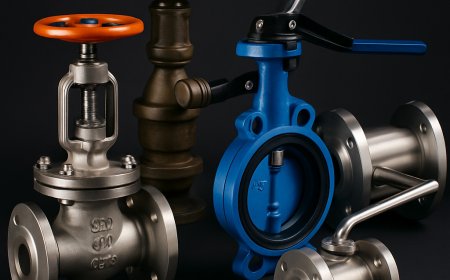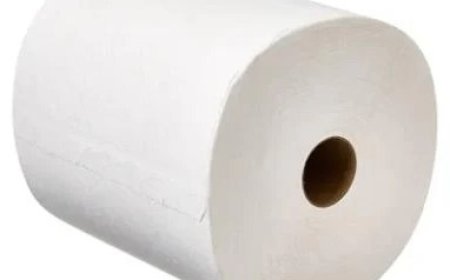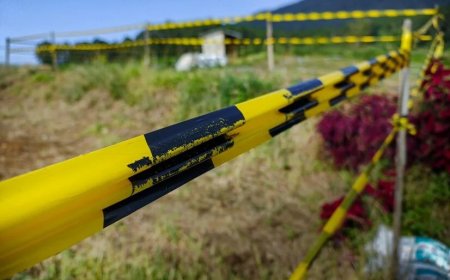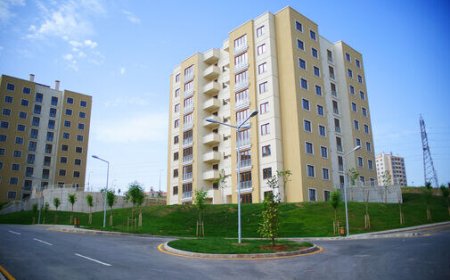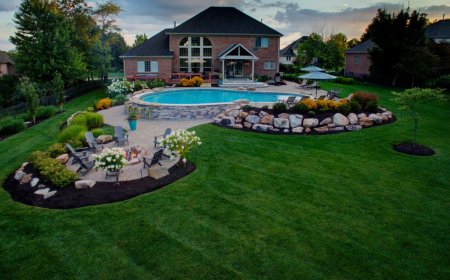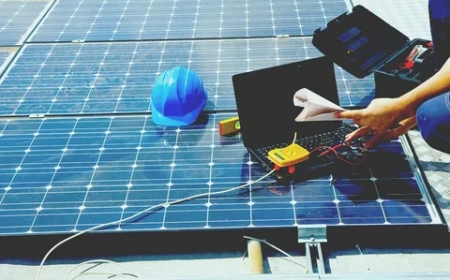How to Clean Artificial Grass: Step-by-Step
In this guide, we’ll walk you through the step-by-step process of cleaning artificial grass, from simple weekly upkeep to deep cleaning methods.

One of the biggest advantages of artificial grass is its low maintenance compared to natural lawns. Theres no mowing, fertilizing, or constant wateringbut that doesnt mean you can completely ignore it. To keep your synthetic lawn looking lush, green, and clean all year long, regular cleaning is essential.
Whether your turf is in a backyard, pet area, school, or sports field, proper care will extend its lifespan, prevent odor buildup, and keep it safe and comfortable for everyone who uses it.
In this guide, well walk you through the step-by-step process of cleaning artificial grass, from simple weekly upkeep to deep cleaning methods.
Why Cleaning Artificial Grass Matters
Artificial turf is made from durable synthetic materials, but it still collects dust, debris, leaves, pet waste, and spills over time. Without cleaning, your lawn can start to look worn out, smell unpleasant, or even become a breeding ground for bacteria.
Regular cleaning:
-
Keeps your grass looking vibrant
-
Removes unpleasant odors
-
Prevents the growth of moss and algae
-
Ensures better drainage
-
Improves hygiene, especially in pet or play areas
Now lets break down exactly how to clean artificial grass the right way.
Step 1: Remove Debris and Loose Dirt
Frequency: Weekly or as needed
Start by removing loose debris like leaves, twigs, dirt, and trash from the surface of your turf. This step is especially important during autumn or after windy weather.
Tools you can use:
-
Leaf blower (ideal for large areas)
-
Plastic rake (avoid metal ones to prevent turf damage)
-
Soft-bristled broom or brush
Be sure to clear out corners, seams, and edges where debris can collect. Keeping your lawn clear of organic material also prevents the growth of mold or moss.
Step 2: Rinse the Surface with Water
Frequency: Bi-weekly or monthly (more often for pet areas)
Once youve cleared the surface, rinse the grass with water to wash away fine dust, pollen, and surface-level grime.
How to do it:
-
Use a garden hose with light to moderate pressure
-
Spray evenly across the entire lawn
-
Focus on areas with visible dirt or where pets frequently play
This simple rinse helps keep the turf clean and freshespecially in dry climates where rain doesnt do the job for you.
Step 3: Spot Clean Stains and Spills
Frequency: As needed
Accidents happendrinks spill, food gets dropped, and sometimes, kids or pets make a mess. Luckily, artificial grass is stain-resistant and easy to clean if you act quickly.
For general stains:
-
Blot the area with paper towels or a dry cloth
-
Mix a solution of warm water and mild dish soap
-
Scrub the stained area with a soft cloth or sponge
-
Rinse thoroughly with clean water
For tougher stains (like oil or sunscreen):
-
Use a 1:1 mix of white vinegar and water
-
Apply with a soft brush and rinse well
Avoid using harsh chemicals or bleach, as they can damage the turf fibers and backing.
Step 4: Clean Up After Pets
Frequency: Daily or as needed
If you have dogs or cats using your artificial grass, regular cleaning is crucial for odor control and hygiene.
How to clean pet waste:
-
Solid waste: Pick it up promptly using a scoop or bag
-
Urine: Hose down the area with water to dilute and flush out the urine
For deeper cleaning:
-
Use a pet-safe turf deodorizer or an enzyme cleaner designed to neutralize odors and bacteria
-
Let it sit for a few minutes before rinsing thoroughly
Some turf infills (like zeolite) also help trap and eliminate pet odors.
Step 5: Brush the Grass Blades
Frequency: Monthly or as needed
Heavy use can flatten the blades of your artificial grass, especially in high-traffic zones. Brushing helps the turf fibers stand back up and maintain their natural appearance.
Use a:
-
Stiff-bristled broom
-
Turf rake
-
Power broom (for large areas or professional maintenance)
Brush against the grain of the turf to lift the fibers and evenly distribute the infill. This also prevents matting and keeps the surface feeling soft and springy.
Step 6: Check and Refresh Infill
Frequency: Every 612 months
Infill (like sand, rubber, or pet-friendly materials) gives your turf its bounce and helps support the blades. Over time, infill can become compacted or displaced.
How to check and top up:
-
Inspect areas where blades are lying flat
-
Brush the turf to redistribute existing infill
-
If necessary, add fresh infill evenly across the surface
Maintaining proper infill levels keeps your artificial grass safe, comfortable, and good-looking.
Step 7: Treat Moss, Algae, or Weeds
Frequency: As needed (especially in shaded or damp areas)
Though artificial grass is weed- and mold-resistant, organic debris or poor drainage can sometimes lead to unwanted growth.
To control moss or algae:
-
Use a turf-safe moss killer or vinegar-water solution
-
Spray the affected area and scrub with a soft brush
-
Rinse thoroughly
To prevent weeds:
-
Apply a non-toxic weed killer around the turfs edges
-
Use a weed membrane under the turf during installation
Consistent cleaning and debris removal will minimize these issues naturally.
Bonus Tip: Avoid These Common Cleaning Mistakes
-
Dont use metal rakes or wire brushes they can tear the turf fibers
-
Avoid high-pressure washers they can displace infill or damage the turf backing
-
Dont use bleach or harsh chemicals they can cause discoloration and degrade materials
-
Dont neglect pet cleanup waiting too long leads to odor buildup and bacteria growth
Final Thoughts
Artificial grass offers the beauty of a green lawn with far less hasslebut it still benefits from regular care. With the right tools and just a bit of time each week or month, you can keep your synthetic turf looking clean, fresh, and new for years.
Verdigrass offers premium artificial grass solutions for landscaping, sports areas, and pet zonesalong with expert guidance on cleaning and maintenance. Whether you're installing new turf or caring for an existing lawn, we're here to help.













